“When the clouds gather in the sky, we start climbing the hill nearby. We don’t know when the flood will come again and wash us away,” says 65-year-old Sawab Khan, standing on the remains of a floor surrounded by huge rocks.
On 15 August 2025, following two days of relentless monsoon rains, a rare and powerful cloudburst triggered devastating floods in Pakistan’s Buner district in Khyber Pakhtunkhwa province. What began as heavy rain quickly turned into a raging torrent, as water, boulders, and uprooted trees thundered down the mountainside, flattening everything in their path. Entire villages were inundated in minutes. Homes were washed away, vehicles overturned, and roads were torn apart.
Pakistan has faced a series of climate-related catastrophes in recent years, including devastating heatwaves, drought conditions, and the unprecedented flooding that occurred in 2022. According to the UN, over six million people have been affected in Pakistan since the unusually heavy monsoon rains began in late June, with nearly 1,000 deaths, including 250 children.
The disaster caused widespread destruction: over 250 lives were lost, thousands were displaced, and there was extensive damage to homes, schools, hospitals and essential infrastructure. “The flooding struck with such suddenness that people had no time to react. Within just four to five hours, the water had surged through and receded. It has left a lasting impact—not just physically, but mentally as well,” Qayyum adds.
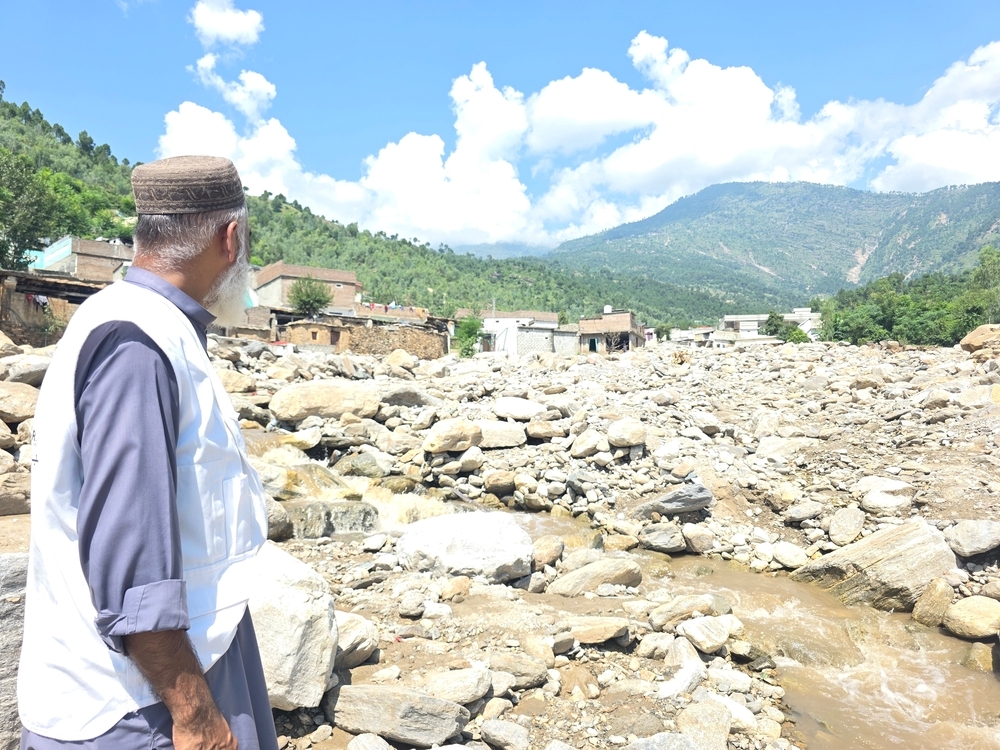
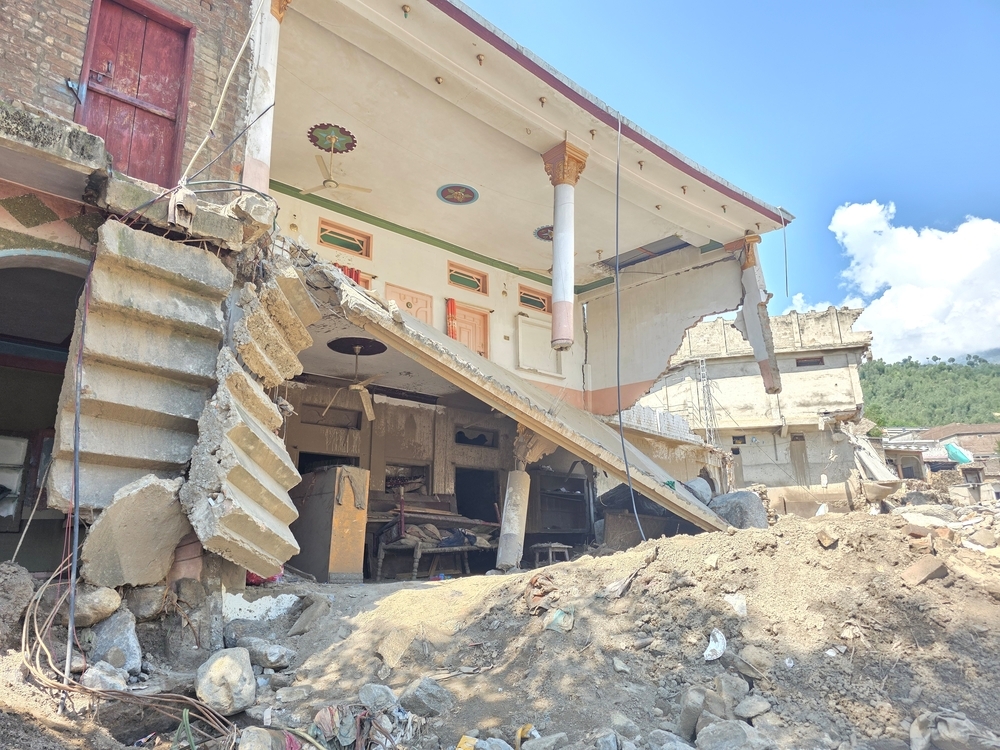
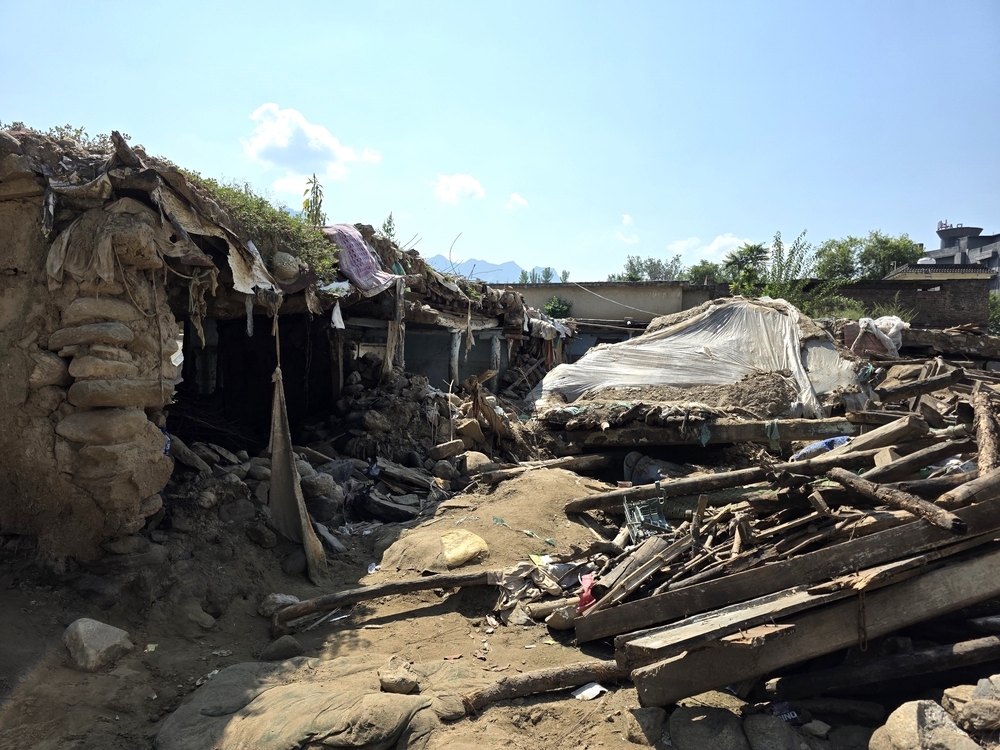
In response, a Médecins Sans Frontières (MSF) team engaged directly with affected communities and authorities to understand their most pressing challenges. MSF began supporting a government health facility in Pir Baba, in the middle of the affected community, offering outpatient consultations, mental health services, and community-based health education.
“We lost twelve relatives from our extended family in the floods,” Sawab recalls. “I’ve told my son to leave this place and settle elsewhere. We have lost everything. We are constantly in fear. Even a few drops of rain terrify us now.” MSF’s mental health team listens to such painful stories every day at the health facility.
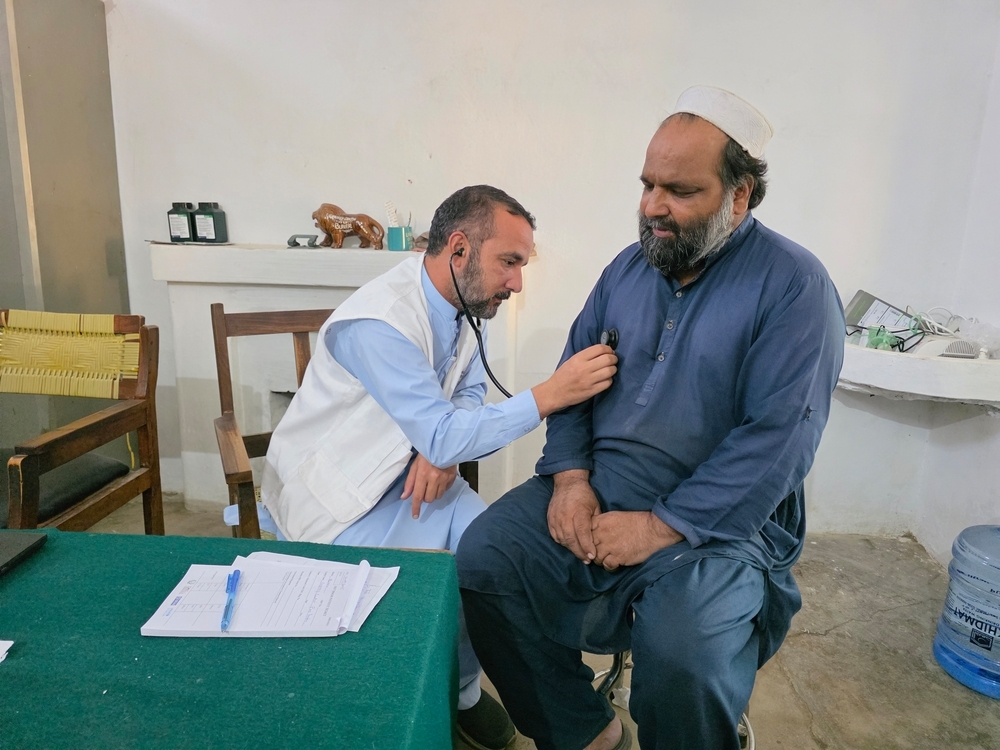
As of September 25, the MSF team has provided 157 mental health consultations: 33 for men and 124 for women. This highlights a widespread need for psychological support among the affected community. Most patients reported trauma-related symptoms such as anxiety, panic attacks, sleep disturbances, emotional numbness, and chronic stress.
MSF mental health counselor Karishma Amir says even the sight of dark clouds makes them panic. They worry constantly, asking, ‘What if the flood comes again while we’re sleeping?’. “We observed symptoms of sleep deprivation, situational anxiety, and emotional exhaustion among our officers and staff as well,” shares the Deputy Commissioner of the district.
“There is still a need for other stakeholders and humanitarian organizations to remain actively involved. Their assistance is urgently needed in key areas such as shelter, non-food items (NFIs), and healthcare,” he adds.
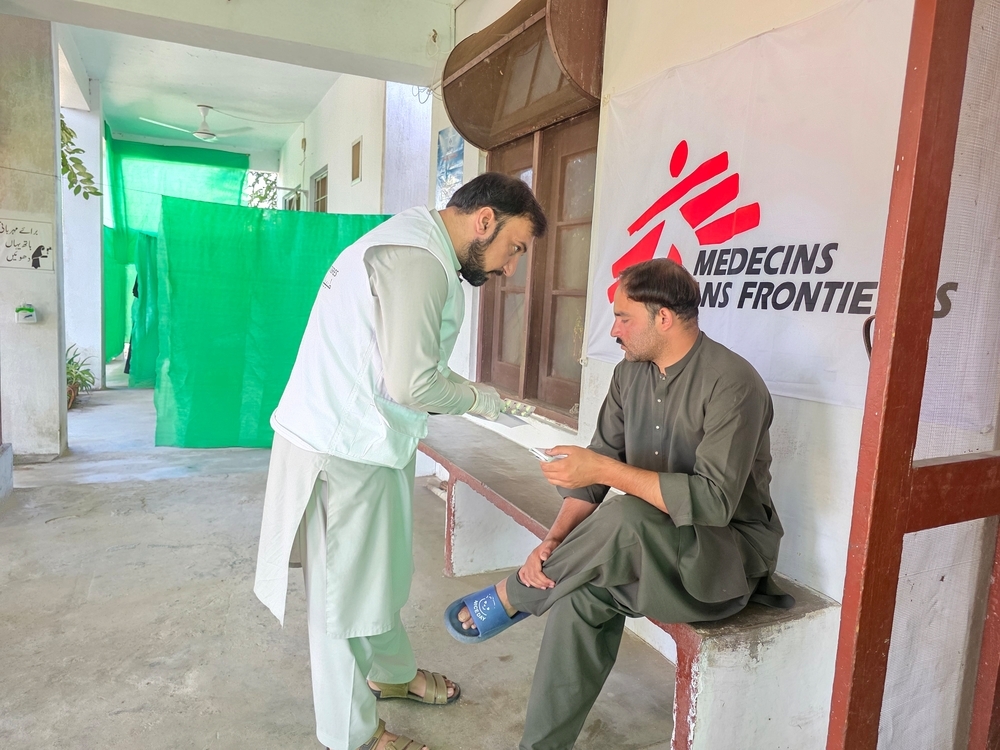
The MSF emergency response has been extended for a few more weeks due to persistent acute needs. Meanwhile it is clear that a long-term mental health response will be necessary as part of health services made available to the community to address the deep-rooted trauma.
During the first five weeks of their intervention, MSF teams have treated over 2,000 patients in outpatient consultations and conducted community-based health promotion activities in the most affected villages. At the same time, MSF extended its support to the government hospital in the district which had received most fatalities and injuries during the flood, by deep cleaning of several wards, distributing hygiene materials, and providing new mattresses.












